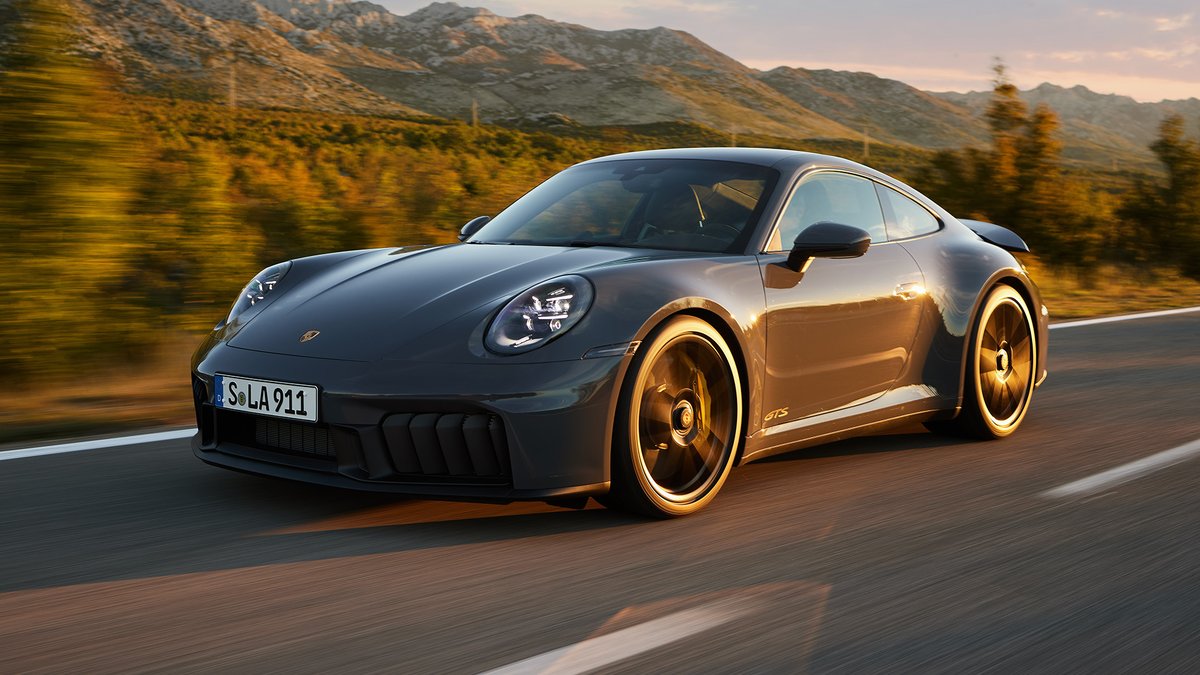On Tuesday, Porsche made headlines by unveiling the first hybrid version of its legendary 911 sports car. This groundbreaking development is poised to further integrate electric motor technology into high-performance vehicles, making it more acceptable to enthusiasts who have traditionally favored gasoline engines.
The launch of a hybrid 911 signifies a pivotal moment for one of the world’s most iconic cars. Hybrids, which offer improved fuel efficiency without sacrificing power, have become increasingly prevalent across various vehicle categories. In the United States, hybrid sales are rising even as the momentum for purely electric vehicle sales has begun to slow.
Porsche, a subsidiary of Volkswagen AG, already offers plug-in hybrid models like the Cayenne e-Hybrid SUV and Panamera e-Hybrid sedan. However, introducing a hybrid powertrain to the 911 represents a significant shift. Initially, this new hybrid system will be available exclusively in the high-performance 911 Carrera GTS model. This model integrates an electric motor within its eight-speed transmission to support the six-cylinder gasoline engine, delivering a combined output of 532 horsepower—59 more than the current Carrera GTS.
The 911 is not just a car; it’s a symbol of Porsche’s brand identity. While the company now sells more SUVs than sports cars, the 911 remains its flagship model. Even the Macan and Cayenne SUVs, with their design elements nodding to the 911, reflect its enduring influence.
In a significant departure from other Porsche hybrids, the 911 Carrera GTS hybrid will not be a plug-in. Unlike the Cayenne e-Hybrid and Panamera e-Hybrid, which can be charged via an external power source and offer a limited electric-only driving range, this new hybrid model will rely solely on its engine and regenerative braking for power. As a result, it won’t be able to drive significant distances on electric power alone, maintaining the traditional driving characteristics that define the 911.
Porsche’s current lineup includes fully electric vehicles like the Taycan and the upcoming Macan Electric SUV. However, company executives have indicated that the 911 will be the last model to transition to an all-electric powertrain due to its unique engineering and iconic status. The rear-mounted engine is central to the 911’s identity, and removing it would fundamentally alter the car’s character. The new hybrid model retains this signature feature, offering the closest experience to an electric 911 without compromising its essence.
Although electric vehicle sales in the US continue to grow, the rate of increase has slowed. Meanwhile, hybrid sales are accelerating, driven by factors such as the high prices of current electric models and insufficient public charging infrastructure. Hybrids, which are generally cheaper and don’t require external chargers, offer a practical alternative.
However, the new hybrid 911 Carrera GTS will come with a premium price tag, starting at around $165,000 for the 2025 model year. Demonstrating its performance capabilities, a Porsche test driver recently completed a lap of Germany’s challenging Nürburgring Nordschleife racetrack in 7 minutes and 17 seconds—8.7 seconds faster than a comparable current-generation 911 Carrera GTS. This impressive time suggests that the hybrid system’s added weight does not negatively impact the car’s handling.
The debut of the hybrid 911 aligns with the 60th anniversary of the original 911’s introduction. First unveiled in 1963 and entering production in 1964, the 911 was a larger and more powerful successor to Porsche’s initial model, the 356. Both models featured rear-mounted engines and small back seats, echoing the layout of the Volkswagen Beetle, designed by Ferdinand Porsche Sr. His son, Ferdinand “Ferry” Porsche, developed the 356, while his grandson, Ferdinand “Butzi” Porsche, designed the 911, maintaining the distinctive teardrop shape and other hallmark features. This new hybrid 911 exemplifies Porsche’s commitment to innovation while honoring its heritage, ensuring that the brand remains at the forefront of automotive engineering.









